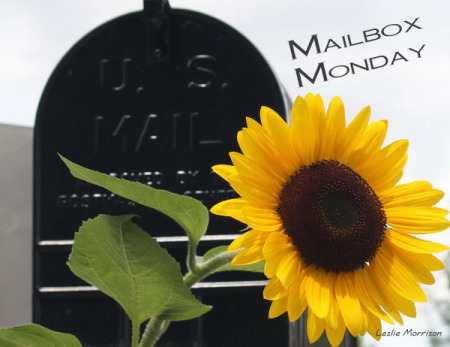M
It now has it’s own blog where book bloggers can link up their own mailbox posts and share which books they bought or which they received for review from publishers, authors, and more.
Leslie, Martha, and I also will share our picks from everyone’s links in the new feature Books that Caught Our Eye. We hope you’ll join us.
Here’s what we received:

In her fourth collection, acclaimed poet Sandra Beasley interrogates the landscapes of her life in decisive, fearless, and precise poems that fuse intimacy and intensity. She probes memories of growing up in Virginia, in Thomas Jefferson’s shadow, where liberal affluence obscured and perpetuated racist aggressions, but where the poet was simultaneously steeped in the cultural traditions of the American South. Her home in Washington, DC, inspires prose poems documenting and critiquing our capital’s institutions and monuments.
In these poems, Ruth Bader Ginsberg shows up at the Folger Shakespeare Theatre’s show of Kiss Me Kate; Albert Einstein is memorialized on Constitution Avenue, yet was denied clearance for the Manhattan Project; as temperatures cool, a rain of spiders drops from the dome of the Jefferson Memorial. A stirring suite explores Beasley’s affiliation with the disability community and her frustration with the ways society codes disability as inferiority.
Quintessentially American and painfully timely, these poems examine legacies of racism and whiteness, the shadow of monuments to a world we are unmaking, and the privileges the poet is working to untangle. Made to Explode boldly reckons with Beasley’s roots and seeks out resonance in society writ large.

When Maggie Smith, the award-winning author of the viral poem “Good Bones”, started writing inspirational daily Twitter posts in the wake of her divorce, they unexpectedly caught fire. In this deeply moving book of quotes and essays, Maggie writes about new beginnings as opportunities for transformation. Like kintsugi, the Japanese art of mending broken ceramics with gold, Keep Moving celebrates the beauty and strength on the other side of loss. This is a book for anyone who has gone through a difficult time and is wondering: What comes next?

Once upon a time a group of friends were seeking a place to call home. The desert was too hot, the valley was too wet and the mountain was too windy.
Then they found the forest. It was perfect. The leaves gave shelter from the sun and rain, and a gentle breeze wound through the branches.
But the friends soon wanted to build shelters. The shelters became houses, then the houses got bigger. All too soon they wanted to control the environment and built a huge wooden wall around the community.
As they cut down the trees, the forest becomes thinner, until there is just one last tree standing.
It is down to the children to find a solution.
Alone! by Barry Falls, which we received for review.
There once was a boy called Billy McGill
who lived by himself at the top of a hill.
He spent every day in his house all alone
for Billy McGill liked to be on his own…One day Billy hears the squeak of a mouse, which destroys his peaceful existence. So he gets a cat to catch the mouse. But the cat and the mouse make friends. So he gets a dog to chase the cat. But they all play together. So then he gets a bear… then a tiger… and on it goes, until Billy’s house is so filled with animals that he has to move out. Will he find that he still craves peace and quiet, or is it better to have company and friends? This a laugh-out-loud story of growing chaos, with a subtle message about how it’s good to have friends.
What did you receive?












